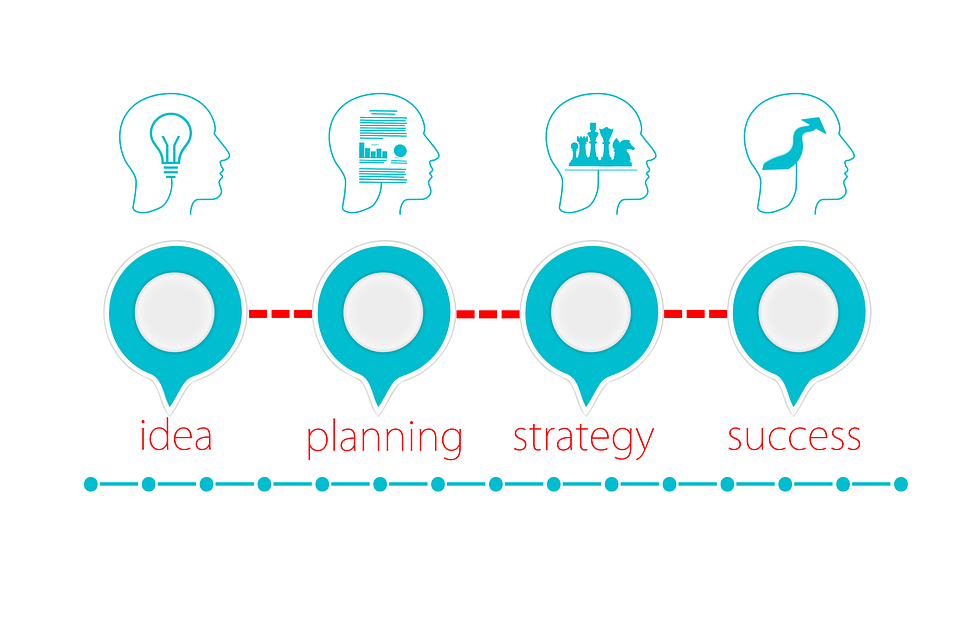Can you plan a trip without a destination? No.
Then how can you build a real estate business without setting clearly defined goals?
A successful real estate career doesn’t happen by fluke. It takes planning. If success is a journey, then goals are the signposts along the way. They’re important markers that tell us how far we’ve come, or how far we still have to go.
If you’re working on a real estate business plan, your success will depend largely on the goals you set. Unrealistic “10X” goals, I have found, will yield zero results. On the other hand, if you’re hitting and smashing all your targets, then your business is probably not growing as fast as it could and you need to challenge yourself.
The Art Of Goal Setting

As Parkbench CEO, I coach agents regularly on how to set specific, targeted goals for your business. Goal setting is an art, and in this blog, I hope to teach you my best practices to do it right.
I’ll also give you a free goal-setting template to help you create your business plan. Finally, I’m going to share 5 of the biggest mistakes I see entrepreneurs make when setting goals, so you can avoid them!
9 Business Goals You Must Set for Your Real Estate Business
Now, If you’ve never actually created a business plan, you can easily find online templates, or create one yourself. You can also download my free business plan template for real estate agents.
In any case, you’ll still need to set goals and targets for your business plan. So, which business goals should you have for your real estate career?
There are 9 primary goals that I teach agents to include in their business plan:
Business Goal 1: Number of Transactions

How many transactions do you want to achieve each month and per year? Write this number down.
Then, look back at the number of transactions you did last year and think, “on a scale of 1-10, 1 being no chance ever will I hit this goal, and 10 being absolute certainty I will, where am I?”
The sweet spot is 7 or 8.
Whether that is 10% growth or 100% growth is totally up to you, where your business is at, your current resources, and many other factors.
If you feel you’re at a 9 or 10, raise the bar! And if you’re below a 6, make it easier on yourself. Once you achieve an easier goal, your confidence will grow and you’ll be able to raise the bar again – patience, young grasshopper!
Business Goal 2: Median Home Price
What do you want your median home sale price to be?
- Research your market and look at your past data.
- Repeat the same rating process from 1-10.
- Then, you use these numbers to calculate these next goals.
Business Goal 3: Volume and GCI
What will your total sales volume be and your subsequent gross commission income?
If you don’t like these numbers, change one of the goals above.
Business Goal 4: Net Revenue
After broker deductions, what will your net revenue be?
This is the number that will define your lifestyle, so make sure you like this one.
And again, if you don’t like this number change your transactions goal, your median home price, or your brokerage/team!
Business Goal 5: Annual Profit
Based on your profit margins last year, what will your net profit be in your business over the next 12 months?
Now if you don’t have past data, or you plan on making changes to profit more or less, what do you want to achieve?
Again, write down your belief score from 1-10 and make sure it’s between 6-8.
Business Goal 6: Distribution of Transaction Type (ie Buyers vs Sellers)
How many buyers or sellers do you want to work with? Do you have a preference? This will determine where you invest your marketing. It also impacts your branding.
Business Goal 7: Distribution of Transaction Source (ie Relationships vs Referrals vs Advertising)
How many transactions will come from each marketing channel? Use past data to determine the most effective channel historically, then set your marketing budget accordingly. If online advertising has been working for you, for example, perhaps it’s time to invest in email marketing software to help you cultivate leads and generate referrals.
On the other hand, if you haven’t been tracking your past results, you can start experimenting now. Track your outcomes carefully and adjust your business plan as the data suggests.
Business Goal 8: Distribution of Clientele Type
Rank the types of clients you would like to do business with. There are so many verticals to choose from:
- Retirees
- Millennial buyers
- First-time sellers
- First-time homeowners
- Condo buyers upsizing
…and many more.
Get clear about the types of clients you want to work with, as this affects your marketing and branding.
And saying “I’ll work with anyone” is not an answer.
Subconsciously, this general approach actually lowers your confidence and therefore your results. Sure you’ll take any client if the deal is good enough, but a targeted approach is more effective.
Focus your thoughts, energy, and marketing toward serving a targeted, niche clientele to be more successful.
Business Goal 9: Brand Positioning

How would you like your audience to perceive you? Think of descriptive words that reflect your brand message:
- Trustworthy
- Friendly
- Expert
- Professional
By defining these 9 goals clearly, you can begin growing your real estate business strategically.
5 Mistakes To Avoid With Your Real Estate Business Goals

To execute your business plan and achieve your goals, I highly recommend you avoid these 5 most common mistakes.
1) Set ‘em and forget ‘em…
All too often I meet agents who set goals for their business plan, but they never revisit those goals! The reality is that the goals you set six months ago may need to be altered or tweaked, according to market conditions, trends, and your results.
You might have to adjust your transaction goal, for example, if the median home price falls. Or, you might need to adjust your GCI goal if you wind up changing brokerages. In any case, don’t forget to review your business goals regularly.
Advice: Review your goals on a daily, weekly, monthly basis.
2) Setting goals you don’t believe in.
Don’t create goals that demotivate you. It’s ok to be ambitious, but is it realistic that you can double your sales volume in the next 6 months?
Maybe it is in your town, but you can only determine this if your research supports your plan. So if you work in a neighborhood with low turnover and low median home prices, doubling your sales volume in 6 months will be impossible.
On the other hand, your goals shouldn’t be easily attainable either. They should be difficult enough to be challenging, but realistic enough to achieve.
Advice: Set realistic goals that challenge you and adjust your plan accordingly.
3) Setting goals without a plan of action.

Often we set goals for our business, but we neglect to include a plan for how to achieve those targets.
Once you have the goal and the belief, you need to form an action plan for reaching your goal. Your action plan outlines specific steps you will take to reach your goals on a daily, weekly, and monthly basis.
Advice: Create a detailed plan of action that outlines your strategy for reaching your goals (ie marketing, branding, advertising, and technology acquisitions required).
4) Setting goals and not doing the math!
One of the most common mistakes I see agents make is they set goals but don’t do the calculations to ensure a return on your investment.
If you decide, for example, to invest in a DSLR camera that costs $1000, calculate the projected ROI on your purchase. Then you’ll know exactly how many transactions you need to make to make your investment worth it. You’ll feel much less anxious about your business expenses when you know exactly how each investment or purchase is contributing to your bottom line.
Advice: Go through your expenses and calculate the ROI as well as the cost for each line item in your plan. (Use my free Goal Setting Cost Calculations template).
5) Setting goals that are not comprehensive.
My final piece of advice about setting goals is to be comprehensive. In other words, don’t just think about how much more money you want to make.
I advise the local leaders I coach to think about three key areas:
- Business Goals – what do you want to achieve?
- Lifestyle Goals – what do you want to do with your success?
- Personal Goals – how do you want to feel about your success?
If your business goal is to increase your monthly sales volume for example, will you have more leisure time for yoga classes (lifestyle) or spending more time with family (personal)?
Your business goals should support your lifestyle and personal goals. Write these down as well, and be specific. As you broaden the focus of your goals to include personal and lifestyle goals, you’ll have a more clearly defined picture of the life you want!
Download my free, comprehensive Goal Setting Worksheet.
Advice: Write down your personal goals and lifestyle goals. Review these goals to ensure they don’t conflict with your business goals.
Conclusion
Survival of the fittest in real estate is all about planning. Here are my 3 final takeaways for you:
- Set realistic goals that challenge you, based on thorough research of your local market.
- With your goals in mind, outline a strategy for reaching those goals.
- Finally, review your plan regularly to make sure you stay on track.
Now go set some goals you believe in!
Want more actionable advice and help planning for your real estate goals in 2023?







